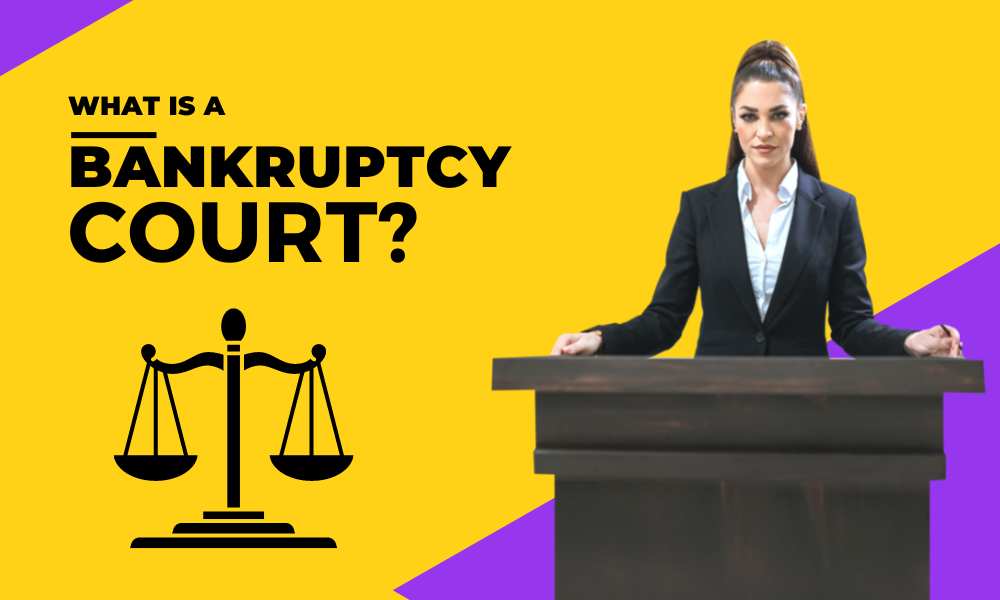Financial Services
What Can You Expect in a Bankruptcy Court?

Learning More About the U.S. Bankruptcy Court
A bankruptcy court, in general, deals with bankruptcy cases and is a specialized court that deals with those cases. The law of bankruptcy allows individuals and businesses who are unable to pay their debts a chance of getting a fresh start by reorganizing their debts or selling off their assets to pay their creditors in a way that gives them a fresh start.
An individual may file for bankruptcy under either Chapter 7 or Chapter 11 of the bankruptcy code. A Chapter 7 bankruptcy is often referred to as a “liquidation” bankruptcy because it involves the sale of the debtor’s assets as a means of paying off their debts. It is necessary for a debtor to give all non-exempt assets over to a bankruptcy trustee in a Chapter 7 bankruptcy case. The trustee will then sell the assets in order to pay off the debtor’s creditors.
As the name suggests, Chapter 11 bankruptcy is sometimes referred to as “reorganization bankruptcy” because it allows a debtor to reorganize their finances and devise a repayment plan for their debts. In a Chapter 11 bankruptcy, the debtor usually keeps control of his or her assets and has enough time to come up with a plan to pay back the debt.
It is important that you consult with a bankruptcy lawyer if you plan on filing for bankruptcy so that you have a complete understanding of what bankruptcy is, what types of bankruptcy are available, and which one is the right one for you.
Functions
A bankruptcy court is a court that only deals with bankruptcies. In the United States, it is a procedure that is subject to oversight by federal courts. The two primary categories of bankruptcy courts are Chapter 7 bankruptcy courts and Chapter 13 bankruptcy courts. In the case of bankruptcy, Chapter 7 is concerned with the sale of assets, whereas Chapter 13 is concerned with financial reorganization and debt repayment.
What steps are taken in Bankruptcy Court?
The bankruptcy court is a legal procedure that can help both individuals and businesses eliminate their financial debts. To be qualified to file for bankruptcy, you must meet all of the following criteria:
- Your assets are worth more than $250.
- You have unsecured debt totaling at least $50,000.
- The amount of equity in your home or automobile is less than $10,000.
- You have not filed a bankruptcy petition in the recent eight years.
Different types of bankruptcy and how to determine which one is best for you
Filing for bankruptcy is a legal process that allows you to discharge all of your debts and start over financially. The most common is Chapter 7 bankruptcy. This will be able to discharge (or get rid of) the majority of your unsecured debt. Types of debt discharged include credit card debt, medical expenses, personal loans, and other types of debt.
Then there is Chapter 13 bankruptcy. This option deals with past-due payments over a three to five-year period. In most situations, completing this procedure will entail not only making complete restitution to your creditors but also continuing to make monthly payments.
How to Prepare for Your Bankruptcy Court Appearance
When the term “bankruptcy” is used, it refers to the act of selling all of one’s property in order to meet one’s financial obligations. While it may be highly unnerving, there are various steps you can take to make the process as simple as possible. The first is preparation. It is vital that you are fully prepared for the hearing by gathering all of the necessary info. Furthermore, you should be informed of the probable questions that will be made of you, as well as the period of time that may elapse before you appear in court.
What Should You Expect from Bankruptcy Court?
If you are considering filing for bankruptcy, it is critical that you understand the court process. You should also be informed of the timetable for filing for bankruptcy and how it may affect your finances. You should be informed of the period for filing for bankruptcy. The first stage in the bankruptcy process, whether under Chapter 7 or Chapter 13, is to attend a bankruptcy hearing.
At the federal courthouse hearing, the judge will decide if you can apply for Chapter 7 or Chapter 13 bankruptcy. Chapter 7 bankruptcy erases all debts and liquidates assets to pay creditors, so you don’t need to appear in court. Chapter 13 repayment plans last three to five years and require six-month court appearances.
Bankruptcy procedures are uniform across the board, including in federal courts, state courts, foreign courts, and bankruptcy judges. A hearing before the bankruptcy court, on the other hand, is usually held in a federal courthouse in the district where you live.
What Happens After Your Case in Bankruptcy Court is Completed?
Individuals who are unable to repay their debts can seek relief through the legal process of declaring bankruptcy. When you file for bankruptcy, your creditors are legally barred from seizing any further money or property from you. Declaring bankruptcy does not absolve you of your obligation to repay your debts. You will be able to stop receiving harassing phone calls from collection agencies and gain some breathing room, allowing you to regain control of your financial situation.
When the process is over, it usually means that the court has granted your discharge. This also frees you from any duty to repay any debts. You can start over with a clean slate.
-

 Credit Score3 years ago
Credit Score3 years agoWhy Do Credit Scores Drop After Acquiring a New Credit Card?
-

 Credit Repair2 years ago
Credit Repair2 years agoHow to Remove Credit Inquiries from Credit Report
-

 Financial advice2 years ago
Financial advice2 years agoHow to Break a Lease Without Ruining Your Credit
-

 Credit Repair2 years ago
Credit Repair2 years agoHow to Fix an Eviction on My Credit Report
-

 Financial advice3 years ago
Financial advice3 years agoGetting Pre-Approved for a Home Loan-The Ins and Outs
-

 Credit Repair2 years ago
Credit Repair2 years agoSmart Credit Repair After Divorce
-

 Financial advice3 years ago
Financial advice3 years agoThe Pros and Cons of Buy Now Pay Later Deals
-

 Credit Cards3 years ago
Credit Cards3 years agoDoes Getting Joint Credit Cards Have an Impact on Both Spouses’ Credit?











